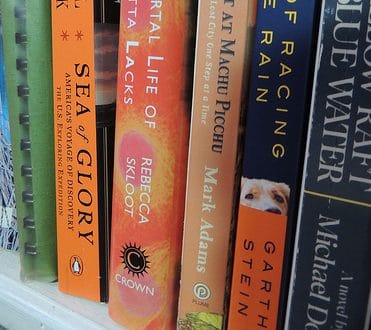Finished a book? Amazing, well done! There are a couple of different routes to get it out there:
- Submit it to poetry or novel/short story collection competitions
- For fiction and creative non-fiction, send it to literary agents–have a look at our How to Pitch to a Literary Agent guide
- Go the self-publishing route if you want to get it out there quickly and with total control
- Send it directly to independent presses accepting submissions–these are publishers who don’t require you to have an agent. (This is almost always true for poetry publishers). For short story collections, this is going to be your best bet, as very few agents and publishers are looking for those.
Some good places to look for these are:
- Mslexia’s Indie Press Guide
- Writers’ & Artists’ Yearbook
- Louise Tondeur’s blog post
- Writing Tips Oasis – fiction
- Writing Tips Oasis – poetry
- National Poetry Library
- Neon Books – poetry
Most presses will have specific windows of reading periods, and/or say they are not currently reading submissions, so you may need to be patient with the ones you’re most interested in.
Have a look at the different publishers out there and make sure you think your work fits in with their authors and books–especially if it’s a press that handles writers you’ve been influenced by.
Do also keep in mind that for poetry and fiction, you will need to have finished the book before sending it to publishers. (This is not often or always true for creative non-fiction.)
There are also two publishers operating on a ‘hybrid’ or ‘crowdpublished’ model:
- Arkbound offers three potential routes, depending on your book and background: traditional publishing, crowdpublishing (as with Unbound), and sponsored publishing.
- Unbound is a hybrid publisher—you’ll need to pitch your book to them, and if it’s accepted, crowdfund for its publication. Please note that Unbound went into administration in March 2025, but we are keeping them in this resource as they may re-open under new ownership.
Formatting Your Work
- Always read the guidelines and follow them in terms of length, format, topic and so on
- Put the title at the top of the first page, and your name (unless stated in the guidelines not to)
- Always use a standard serif font (like Times or Garamond) rather than a sans-serif font (like Calibri or Arial)
- Double space and use 11 or 12 point type
- Include page numbers
- Always proofread and get someone else to proofread–to find the small errors software doesn’t catch
- Never use colours or strange fonts, or include photos/illustrations unless indicated otherwise in the guidelines that these are accepted
- Don’t add ‘© your name’–it’s automatically copyrighted
Cover Letters
- Always include a short cover letter or e-mail with your work.
- Don’t start ‘Dear Editor’ unless you absolutely have to–every press will have a masthead where you can find the current appropriate person’s name.
- Take the time and see what other authors they publish, and say why you think your work fits with their ethos/mission–especially mention other writers/books they’ve published whose work is influential on yours or similar. Mention what you read and loved.
- Check the guidelines for what they want to see in a cover letter regarding a synopsis, overview of the manuscript, and similar.
- If you have any previous awards or publications, always mention and summarise these.
- Don’t forget to close with something like “thanks for taking the time to consider my work.”
Keeping Track & Keeping Going
- Set up a simple list or chart to keep track of what work you sent where and when.
- Publishers will usually state their usual reading times, so you’ll have some idea when you’re likely to hear–do BE PATIENT and don’t query them until it’s beyond twice that. Expect to wait a few months at least; six months or more is not unusual.
- It is usually OK to submit the same work simultaneously to a couple of different places, but always check the guidelines.
- That being said, don’t blitz everywhere…be selective rather than scattershot.
- If your book is accepted, do immediately withdraw it from anywhere it’s been simultaneously submitted. (They will not be mad about this! It’s not only one less thing to read, it’s courteous and professional, and shows they missed out on something good.)
- Getting published is highly competitive! Don’t give up after sending your work to a handful of places–you’ll need to be persistent.

